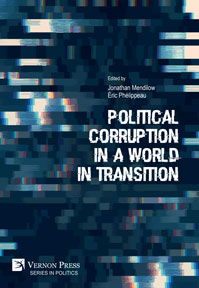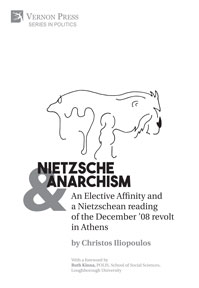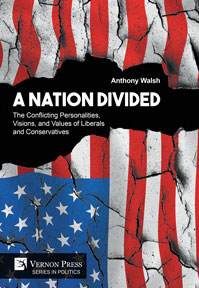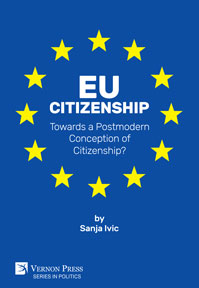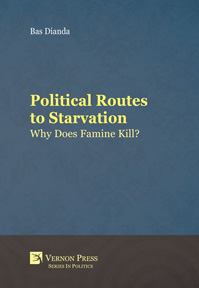Search
Browse
by Publication status
by Subject
Anthropology (26) Art (171) Business and Finance (38) Cognitive Science and Psychology (63) Communication and Journalism (51) Economics (116) Education (71) History (169) Human Geography (23) Interdisciplinary (43) Language and Linguistics (178) Law (16) Music Studies (18) Philosophy (222) Political Science and International Relations (127) Sociology (404) Statistics and Quantitative Methods (21)by Series
Series in Literary Studies (62) Series in Philosophy (57) Series in Education (49) Series in Sociology (42) Series in World History (31) Series in Politics (30) Bridging Languages and Scholarship (26) Series in Language and Linguistics (25) Cognitive Science and Psychology (20) Series in Philosophy of Religion (20) Series in American History (19) Series in Art (19) Critical Perspectives on Social Science (16) Series in Cinema and Culture (16) Curating and Interpreting Culture (15) Series on the History of Art (14) Series in Anthropology (13) Series in Critical Media Studies (13) Economics (13) Series in Business and Finance (12) Series in Music (12) Series in Performing Arts (9) Philosophy of Personalism (8) Series in Communication (8) Series in Law (8) Series in Economic Methodology (7) Series on Climate Change and Society (7) Classics in Economics (6) Series in Economic Development (6) Women's Studies (6) Philosophy of Forgiveness (5) Series in Built Environment (5) Series in Economic History (5) Series in Philosophy of Science (4) Series in Social Equality and Justice (4) Series on the History of Science (4) Serie en Sociología (3) Series in Contemporary History (3) Series in Creative Writing Studies (3) Series in Design (3) The Interdisciplinary Built Environment (3) Series in Heritage Studies (2) Series in Innovation Studies (2) Serie en Ciencias Políticas (1) Serie en Comunicación y Medios (1) Serie en Entorno Construido (1) Serie en Estudios Culturales (1) Serie En Estudios Literarios (1) Serie en Filosofía (1) Serie en Música (1) Series in Classical Studies (1) Series in Economics of Technological Change (1) Series in Philosophy of Race (1) Series in Urban Studies (1)by Language
English Spanishby Author
Browsing with filters
Political Corruption in a World in Transition
Edited by
Jonathan Mendilow, Rider University
and Éric Phélippeau, Université Paris Nanterre, France
Availability: In stock
337pp. ¦ $65 £49 €55
This book argues that the mainstream definitions of corruption, and the key expectations they embed concerning the relationship between corruption, democracy, and the process of democratization, require reexamination. Even critics who did not consider stable institutions and legal clarity of veteran democracies as a cure-all, assumed that the process of widening the influence on government decision making and implementation allows non-elites to defend their interests, define the acceptable sources and uses of wealth, and demand government accountability. This had proved correct, especially insofar as ‘petty corruption’ is involved. But the assumption that corruption necessarily involves the evasion of democratic principles and a ‘market approach’ in which the corrupt seek to maximize profit does not exhaust the possible incentives for corruption, the types of behaviors involved (for obvious reasons, the tendency in the literature is to focus on bribery), or the range of situations that ‘permit’ corruption in democracies. In the effort to identify some of the problems that require recognition, and to offer a more exhaustive alternative, the chapters in this book focus on corruption in democratic settings (including NGOs and the United Nations which were largely so far ignored), while focusing mainly on behaviors other than bribery.
Nietzsche & Anarchism: An Elective Affinity and a Nietzschean reading of the December ’08 revolt in Athens
February 2019 / ISBN: 978-1-62273-603-4Availability: In stock
222pp. ¦ $59 £44 €50
This book aims to establish the bond between Friedrich Nietzsche and the anarchists, through the apparatus of “elective affinity”, and to challenge the boundaries of several anarchist trends – especially “classical” and “post” anarchism – and “ideologies” like anarchism and libertarian Marxism. Moreover, it highlights the importance of reading Nietzsche politically, in a radical way, to understand his utility for the contemporary anarchist movement. The review of the literature concerning the Nietzsche-anarchy relationship shows the previously limited bibliography and stresses the possibility of exploring this connection, with the methodological help of Michael Löwy’s concept of “elective affinity”. The significance of this finding is that the relevant affinity may contribute to an alternative, to the dominant, perception of anarchism as an ideology. It may also designate its special features together with its weaknesses, meaning the objections of Nietzsche to certain aspects of the anarchist practices and worldview (violence, resentment, bad conscience), thus opening a whole new road of self-criticism for the anarchists of the twenty first century. In addition, the location and analysis of the elective affinity serves the debunking of the Nietzschean concepts used by conservative and right-wing readings in order to appropriate Nietzsche, and of the accusations that the German philosopher had unleashed against anarchists, which reveals his misunderstanding of anarchist politics. The final part of this book applies the whole analysis above on a Nietzschean reading of the December ’08 revolt in Athens based on the “Of the Three Metamorphoses” discourse from Thus Spoke Zarathustra, offering an alternative view of the events that shook Greece and also had an important global impact.
A Nation Divided: The Conflicting Personalities, Visions, and Values of Liberals and Conservatives
Anthony Walsh, Boise State University
Availability: In stock
188pp. ¦ $59 £44 €50
Activists have long claimed that “the personal is political”, but this book posits the converse: that the political is personal. The United States today is bitterly divided. It is less an aspirational melting pot of immigrants and more a salad bowl made up of distinct, often clashing flavors. The successive elections of two divisive presidents—one committed to the perennial leftist dream of “fundamental change” and the other to a conservative vision of “Making America Great Again”—have exacerbated what is arguably the greatest rift in politics since the election of Abraham Lincoln. Taking inspiration from Coleridge’s belief that all humans are temperamentally destined to follow the path of Plato the Idealist or Aristotle the Realist, this book examines the political divide in terms of these temperamental differences. Liberals’ and conservatives’ views of human nature have a large bearing on the political policies they espouse, but their temperaments and personalities have the most significant impact. This book analyses the personality traits of liberals and conservatives in terms of the “Big Five” model—openness to experience, conscientiousness, extraversion, agreeableness, and neuroticism. Conservatives are found in almost all studies to be more conscientious, agreeable, and extroverted, while liberals are found to be more open to new experience and neurotic. The political divisions I explore in this book are all essentially fueled by personality differences. There is a deepening divide between liberals and conservatives in the battle for America’s soul: one side seeks to steer the nation sharply to the left into socialist selfdom, whereas the other side desires a wealthy and free America under the watchful eye of God’s providence. A preponderance of academic texts belongs to the liberal tradition. Conservatives have long lacked a comparable intellectual tradition of their own, although an incipient one is now beginning to form. This book, while maintaining a measure of scholarly distance, is unashamedly written from a conservative point of view.
EU Citizenship: Towards a Postmodern Conception of Citizenship?
Sanja Ivic, Institute for European Studies, Serbia; Institute of Applied Ethics, University of Hull, UK
Availability: In stock
200pp. ¦ $59 £44 €50
The modern liberal idea of citizenship is constructed by a fixed notion of identity which gains meaning through a number of binary oppositions, such as we/ they, citizen/ foreigner, self/ other and so forth. Defined by these binaries, where the first term is perceived as dominant because it is considered to be derived from reason, the fixed notion of identity inevitably produces exclusion and marginalization. Importantly, the postmodern concept of citizenship stems from a critique of these essentialist and universalist conceptions of identity. Exploring European identity and European citizenship from a philosophical perspective, this book reveals the discursive construction of these two concepts whilst at the same time attempting to define them as either modernist or postmodernist categories. Dr. Ivic takes a hermeneutic approach in her interpretation of European citizenship and identity through a close reading of European treaties and other official documents. Through her detailed analysis, Dr. Ivic is able to present the reader with well-informed and concrete examples of modern and postmodern concepts of identity within Europe. Moreover, this book explores the impact that contemporary issues such as Brexit, the migration crisis in Europe, and the proliferation of nationalist discourses, have on European citizenship and identity. Where existing research literature has failed, this book offers a dynamic and textual analysis of citizenship that takes into account the complex philosophical, legal, political and theoretical background of Europe. Dealing with issues that have not yet been sufficiently explored, ‘EU Citizenship’ is an important contribution to the field of philosophical analysis. Aimed at university students, this book will also provide a baseline and set of reference points for researchers and practitioners of European studies that are working with projects that look at European citizenship.
Political Routes to Starvation
Why Does Famine Kill?
April 2018 / ISBN: 978-1-62273-309-5Availability: In stock
432pp. ¦ $68 £49 €55
This book seeks to reclassify famine by offering an in-depth look at the phenomenon that continues to affect millions of people across the world every year. Defined as a widespread scarcity of food, Dr. Basilio Dianda argues that the causes of famine cannot be reduced exclusively to a shortfall in agricultural output or to economic dynamics. Instead, an analysis of famine must take into account political and economic factors as well as agricultural, climatologic and demographic data. ‘Political Routes to Starvation’ is the result of an all-encompassing analysis of eighty famines from across the globe. This extensive piece of research demonstrates that there are not only multiple factors at play in the genesis of a food crisis, but also in its evolution to starvation. Dianda contends that in order to fully understand the causes of famine it is necessary to reinstate a hierarchy between foundation and concomitant causes, especially when cross-comparing cases. Importantly, Dianda maintains that only a comprehensive approach to famine can appropriately answer the questions: What is famine? How does famine occur? Why does famine kill?

